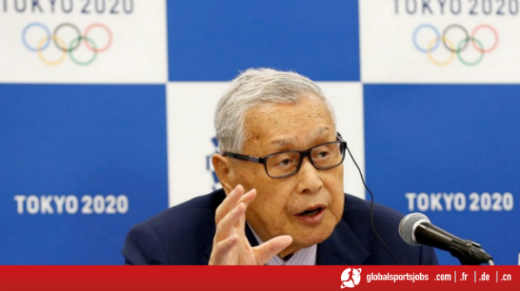Search the latest and greatest job opportunities in sport

With the Tokyo 2020 Olympics hype building up, major Japanese companies have been quick to join the sporting bandwagon with significant sponsorship investments.
In the light of these developments, Edelman Japan conducted a study to try and identify the expectations of locals for Toyko 2020, and how brands can use these insights and leverage on the event to deeply connect with consumers.
The results of the survey suggest that just being a sponsor of the Olympics alone is not enough. While 72% of respondents said they would be favourable to the products and services of Olympic sponsors, when asked if that sponsorship would trigger a purchase decision, only one in five replied that it would. Only 9% replied they would recommend those products and services to family and friends.
The top expectation for Olympic sponsors, from 45% of Japanese consumers, is that they will contribute to the legacy of the Olympics. This was significantly higher than the 32% that looked forward to campaigns or the 28% that selected promotional offerings. However, of all age groups surveyed, students (16-24) were the most likely to be influenced to buy or recommend products from an Olympic sponsor at 39%. Perhaps this is a sign that the younger generation are more vocal about their relationships towards brands.
To build a stronger relationship with the brand – taking it from one of mere interest to authentic engagement – Olympic sponsors must be part of the problem-solving legacy. Brands must be seen as contributing alongside key stakeholders and other sponsors of the Games toward a common lasting legacy for the 2020 Tokyo Games.
What do Japanese consumers see as being the key desired legacies of the 2020 Olympics? 42% of respondents replied that contribution to economic growth was the most important legacy. A similar number, 46%, nominated effective use and transformation of sports facilities post-Olympics. Improvement in public transport (38%) and Wi-Fi infrastructure (32%) were also high on the agenda. It seems that a lot of discussion about the post-Olympic economic slump, pictures of ghost town Olympic villages and talk of the economic burden of holding the Olympics has driven Japanese consumers to look to longer-term infrastructure benefits.
For the younger age group, 20% see the Olympics as an opportunity to learn English and hope to participate as a volunteer. The most jaded age group appears to be the 25 to 49 category, where 44.6% replied they were indifferent to Olympic sponsors, although this dropped to 22.9% for those with children. This should be a particular note of caution as the 25- to 49 group are those most likely to be driving consumer spending in 2020.
Read the original article from our editorial partner, Asia Sponsorship News.
Give your career in sport a boost with the latest live vacancies in Sport Marketing & Sponsorship , or create an account today and stay up to date with all the latest industry knowledge, events and jobs in sport.
Search the latest and greatest job opportunities in sport
In the world of professional sports, sponsorship represents a significant source of revenue and plays a vital role for t...
Read moreThe sports industry is a vibrant and multifaceted industry, made up of a diverse range of sectors that shape its global ...
Read morePablo Romero, director of protocol at Sevilla FC and lecturer in the UCAM Master's Degree in Sports Management, shares t...
Read more